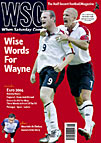 Double-figure drubbings are out (almost) and shocks are in. Matthew Hall reports on how the Solomon Islands and Vanuatu upset the odds in the South Pacific qualifiers
Double-figure drubbings are out (almost) and shocks are in. Matthew Hall reports on how the Solomon Islands and Vanuatu upset the odds in the South Pacific qualifiers
The cliche says that if it’s 31-0 then this must be the Oceania Football Confederation’s World Cup qualifying competition but, thankfully, OFC took heed of record-breaking scores four years ago. A three-phase tournament now saves teams such as American Samoa the embarrassment of massive drubbings against Australia – in 2001, the Samoans actually did watch 31 goals go past their goalkeeper.